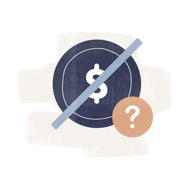At the basic level, net 30 refers to the time frame in which the full amount must be paid by a client. With a net 30 invoice, the client has to pay within 30 days or less. Yet that doesn’t really tell you how net 30 might help you to build commercial credit or why it can be a great choice of credit for new and old businesses alike.
Keep reading for a breakdown of exactly what is net 30 and learn how your business might benefit from opening a few of these useful tradelines.
What Is Net 30?
Net 30 describes the time frame in which an amount must be paid back to the creditor. Financing or terms including net 30 terms may be extended to your business by a vendor or supplier. With net 30, your payment is due 30 days after you receive an invoice for the goods or services your company purchased.
Trade accounts may feature net 60 or net 90 terms as well. However, net 30 terms tend to be more commonly offered by vendors and suppliers.
If you’re searching for vendor accounts to establish credit for your company, here are links to a few helpful guides from Nav:
Because of their business credit-building potential and ability to stretch cash flow farther, accounts with net 30 terms are a popular type of credit among small business owners and large corporations alike.
Net 30 Interest Rate
While every vendor sets its own terms when offering trade credit, many vendors don’t charge interest on net 30. But that doesn’t mean net 30 financing is necessarily free. Even if a vendor doesn’t charge you interest, there may still be less obvious costs associated with these short-term vendor accounts.
Trade credit can be a valuable resource for your business. Not only will trade credit help you to stretch your cash flow, it can also help you to establish business credit, even if your company is a startup or new to credit. In fact, the Small Business Administration recommends vendor accounts as one of the top ways for businesses to build credit for the first time.
Here are two common ways a vendor might charge you for extending net 30 terms:
Loss of Early Payment Discount
Your vendor might give you up to 30 days to pay the invoice (net 30 terms) but offer you an incentive (aka a payment discount) if you pay early. This is sometimes referred to as 2/10 net 30 terms (though there are other types of similar credit terms as well). Under 2/10 net 30 terms, you would receive a 2% discount if you pay your invoice within 10 days or less.
If you wait too long and miss out on an early payment discount, you’ll pay more for those goods or services than you would otherwise. For example, it might cost you $1,000 to wait 30 days to pay your invoice or $980 if you pay early. In this scenario, taking advantage of net 30 terms costs you an extra $20. That extra money is a cost you should consider, even if it’s technically not considered to be an interest charge.
Late Payment Penalties
Some net 30 invoices specify that you’ll be charged penalty interest or fees for late payments. You should be aware of this possibility and carefully read the terms of your agreement. Ideally, you’ll want to avoid late payments, not just because of potential late charges, but also because late payments could potentially damage your business credit reports and scores.
Net 30 Payment Terms Letter
When a vendor offers you net 30 terms, you’ll most likely be required to sign something called a payment terms letter. This may also be referred to as an agreement or contract, and it may be included as part of your initial application.
A net 30 payment terms letter will spell out how, when, and under which conditions a vendor expects to get paid when it sells you goods or services.
A payment terms letter might include any of the following:
- How long you (the customer) have to pay your invoice
- Early payment discounts (if available)
- Late fees or penalty interest
- List of accepted payment methods
Net 30 Payment Terms Example
Here’s a very basic example of what net 30 invoice payment terms might look like when you set up a vendor account.
| Net 30 Payment Terms Example |
| TERMS OF SALE: Payment is due within 30 days of invoice. A statement will be mailed at the end of each month.
Customer may submit payment via credit card, ACH, or check. An additional 1.75% per month interest charge (21% annual percentage rate) will be charged on all invoices not paid within 30 days. This rate is based on your past due balance at the end of each billing period. Payments made 30 days after invoice date must include this service charge to be considered fully paid. If your account is turned over to a collection agency or attorney for collection, or in the event of a default, all costs of collection, including a reasonable attorney’s fee, will be paid by the debtor. The undersigned assumes full responsibility, and agrees to be liable for bills incurred as a result of this application. Print Name:___________________________________
Signature:____________________________________ |
Before You Apply
Before you apply for trade credit, it’s smart to make sure your business is as prepared as possible. Doing so may increase your chances of approval when you apply for a new vendor account. The following three steps may help.
Make sure your business is legitimate.
Want your company to look credible to vendors and lenders? You need to set things up the right way upfront.
A few of the steps you may need to take include:
- Form a legal business entity
- Register for an EIN with the IRS
- Open a business bank account
- Apply for a D-U-N-S number with Dun & Bradstreet
For more details and advice, check out this full 14-step checklist to help you make your business legit.
Check your credit.
It’s important to keep a close eye on your credit reports — both business and personal. However, it’s never more important to know what your credit looks like than when you’re getting ready to apply for financing.
While many vendors are willing to open net 30 for startups and other business credit newbies, some may still want to review your credit reports first. Although it’s less common with net 30, some vendors may also want to check your personal credit report when you apply.
If there’s a chance a vendor or lender is going to be reviewing your credit reports, you should review them yourself first. The last thing you want to experience when you apply for financing is an unpleasant surprise hanging out on your credit report without your knowledge.
Thankfully, accessing your credit is easy. You can check your business and personal credit side by side by setting up a free account with Nav.
Find vendors that report to the credit bureaus.
Are you trying to open vendor accounts to build your business credit profile? If so, it’s crucial to find a net 30 that report to the business credit bureaus.
Any net 30 vendor account might help you to stretch your company’s cash flow farther. But, only net 30s that report can potentially help you establish better business credit for the future.
It may be tempting to skip these steps to try to speed up the business credit- building process. However, laying the groundwork before you apply for a net 30 (or any other type of business credit) is important. If you prepare in advance, you may significantly boost your chances of success.
If you do qualify for net 30, remember that it’s crucial to always pay on time. Your business credit scores are heavily influenced by your payment history. When you pay late, your scores could take a hit. Pay early, on the other hand, and you might earn a credit score boost.
Resolve is a platform that helps merchants grow B2B sales, get paid faster, and reduce risk by streamlining your net terms, accounts receivable, and payments processes. You no longer have to “be the bank to your customers”. Resolve helps you make credit decisions, unlock working capital, and get paid. Save time and money with Resolve’s Invoice Chasing feature that reminds your customers in a friendly manner when their payments are due. If you run into delinquent accounts, Resolve is engaged with a professional collections network that helps maximize recovery.
This article was originally written on January 27, 2020 and updated on June 22, 2020.



Have at it! We'd love to hear from you and encourage a lively discussion among our users. Please help us keep our site clean and protect yourself. Refrain from posting overtly promotional content, and avoid disclosing personal information such as bank account or phone numbers.
Reviews Disclosure: The responses below are not provided or commissioned by the credit card, financing and service companies that appear on this site. Responses have not been reviewed, approved or otherwise endorsed by the credit card, financing and service companies and it is not their responsibility to ensure all posts and/or questions are answered.